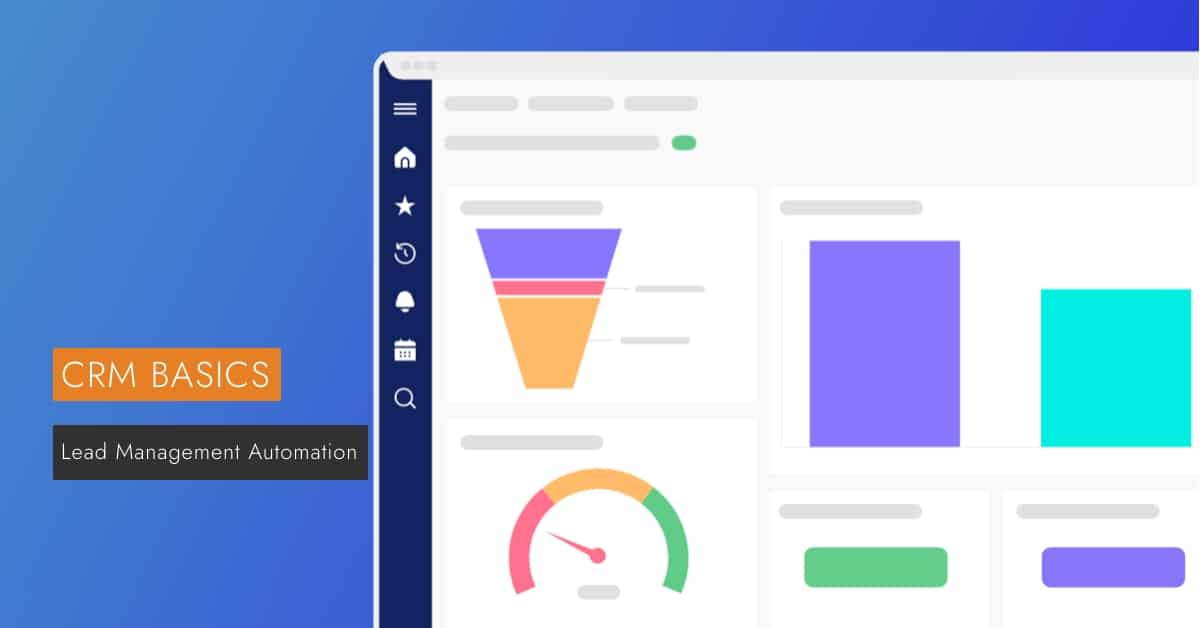Lead Management Automation: The Benefits of a Good Lead Management System

You’ve probably heard of a lead management automation system, but you may be wondering if implementing such a system is the right step for your business. First, you need to understand exactly what lead management automation is.
Lead lifecycle management is a difficult task. At every stage of the buyer’s journey, leads should be treated with special care. But scaling your pipeline is more easily said than done. With speed being a critical component in converting leads to opportunities, you’ll need a lead lifecycle that takes buyers through information collection, appraisal, and decision-making in a timely and precise manner.
In this post, we’ll go over what lead management automation is and look at the benefits implementing such a system can offer a business.
Defining Lead Management Automation
Lead management automation refers to a software system that integrates with your existing customer relationship management (CRM) software. It includes a variety of lead-handling techniques, from data extraction and filtering to automated nurturing campaigns.
However, the goal of this system is to provide qualified leads an ideal user experience at every stage of the buying process.
Features of a Good Lead Management System
Reliable Data Collection
A direct line of communication is crucial for lead management automation. The number one reason companies fail to see the desired results from automated efforts is that they don’t gather lead data properly. They either do not have enough information or, worse, that information is incorrect or incomplete.
Whether you need better contact details or access to more information about buyers’ behaviors and preferences, a sound lead management system will give you all of the data you need to qualify, assign, and prioritize leads.
Data Filtering
One thing we’ve learned from working with countless companies is that there is no such thing as a “bad lead.” In most cases, leads are simply not qualified. Unfortunately, this is a problem that most businesses have not been able to fix. That’s where the next feature of a good lead management system comes into play: data filtering.
A quality lead management system will allow your business to analyze prospects and prioritize those that are most likely to turn into paying customers.
Automated Campaigns
Once you’ve gathered data on your prospects, prioritized them, and segmented them into specific groups, it is time to engage with them through automated campaigns.
Automated campaigns give your business the chance to send targeted messages and notifications to prospects at different stages of their buyer’s journey. You can speak directly to potential customers in a language and tone they will understand, making it more likely for them to engage with you.
Lead Nurturing
With so many businesses focused on closing sales as quickly as possible, lead nurturing often falls to the wayside. This is a mistake. A good lead management system will allow you to nurture prospects and retain their interest over time with automated emails that are triggered by web behaviors and brand engagement.
Reporting
The data you collect is useless if there’s no way to analyze it and make decisions based on your findings. A good lead management system will provide your business with reporting tools that tell you where leads are coming from, what campaigns generate the greatest rate of response, and which prospects are most interesting to you.
This feature is essential for lead management automation, as it gives your team the data it needs to make strategic decisions about future leads.
The Benefits of Implementing a Good Lead Management System in Your Business
Whether you’re running an ecommerce website or a brick-and-mortar store, your business will benefit from implementing a lead management system. Here are just a few of these benefits:
Better Tracking and Conversion Rate
By matching your website visitors to their online behavior, you can better track your campaign’s success rates. That means you know exactly how effective each campaign is in converting your prospects into paying customers.
Data-Driven Decision Making
Your business will have access to a wealth of data that can help you make data-driven decisions about future campaigns and the kinds of content that will work best for your customers. You’ll be able to see how each lead responds to different types of messaging, which in turn helps you decide how to prioritize your time and resources.
Streamlined Lead Management Process
With a good lead management system, it’s easy for you and all of your team members to have access to the same data and to collaborate on future campaigns. Your sales reps can keep track of their leads on the pipeline, making it easy to prioritize their efforts and collaborate on closing new sales.
Conclusion
Lead management automation is a powerful tool for businesses to make better, more strategic decisions about engaging with their prospects. If your business is ready to grow, investing in this automation will help you track and nurture leads at every stage of the buyer’s cycle. Ready to learn more about lead management automation? Try Veloxity for free!
